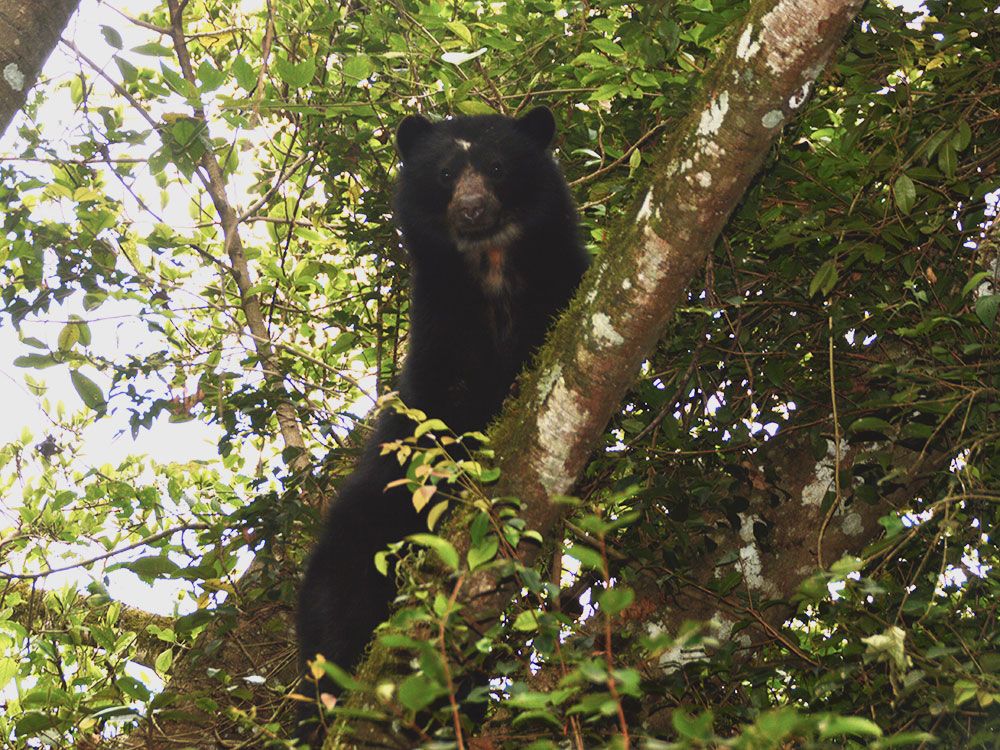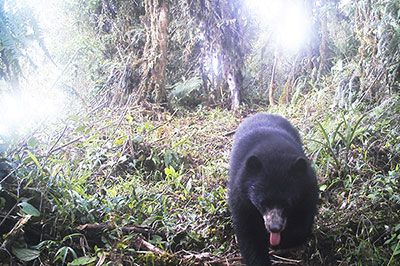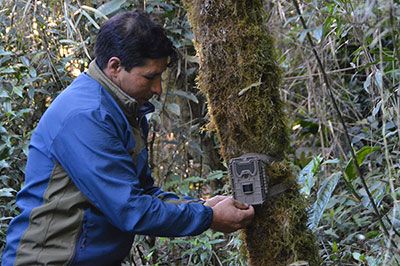Helping our threatened Andean bears

Protecting bears in South America from illegal killing and severe habitat loss
The Problem
IUCN Status: Vulnerable, with 2,500 – 10,000 mature individuals
Andean, or ‘spectacled’ bears, made famous by Paddington, are the only bears that live in South America. Found in the Tropical Andes, a narrow strip of land running from Venezuela to Bolivia, these animals are under severe threat from habitat loss, habitat fragmentation and illegal killing. Andean bears need very large areas over which to roam. However, because of fragmentation, over 30% of their previous habitat is now too small for populations to survive in. And, worryingly, another 30% is projected to be lost in the near future. Some of the biggest threats to habitat are from unsustainable agriculture and logging, and extractive industries like mining. The Tropical Andes is very vulnerable to climate change.
It is estimated that up to another 30% of all ecosystems that the bears inhabit will be lost in the next 20 years through climate change alone. This charismatic species is also under threat from illegal killing. The majority of killings are by farmers who kill the bears to prevent damage to crops or livestock. Other bears are killed for supposed medical benefits. Worryingly, as more of their habitat is lost and bears are forced into more contact with humans, the numbers of bears killed is increasing.
 The Solution
The Solution
This project focuses on the Neblina Reserve, which is a protected cloud forest on the slopes of the Andes in northwest Ecuador. PTES funds are supporting Rainforest Concern. They have been creating and extending the reserve since 2002. Our aim for this project is to gain a greater understanding of the factors affecting the decline of Andean bears around the Neblina Reserve and to determine the best measures to stop them.
We will also aim to reduce human/bear conflict through engaging with local communities. The team will use remote sensing to determine how many bears live in the reserve. The data we gather will also give us a better understanding of their behaviours and how they move around their remaining forest homes. We will also train the reserve’s forest guards to install camera traps, and improve their skills in identifying and monitoring wildlife. Changing attitudes to bears is key in preventing killings. Crucially, we’ll be working with a local environmental organisation. They will host workshops for nearby communities to raise awareness of the importance of protecting wildlife and the forest to reduce risks of human-bear conflict. We hope that this urgent work will begin to turn around the fortunes of Andean bears so that their future does not look so bleak.
Donate now to support our current projects
